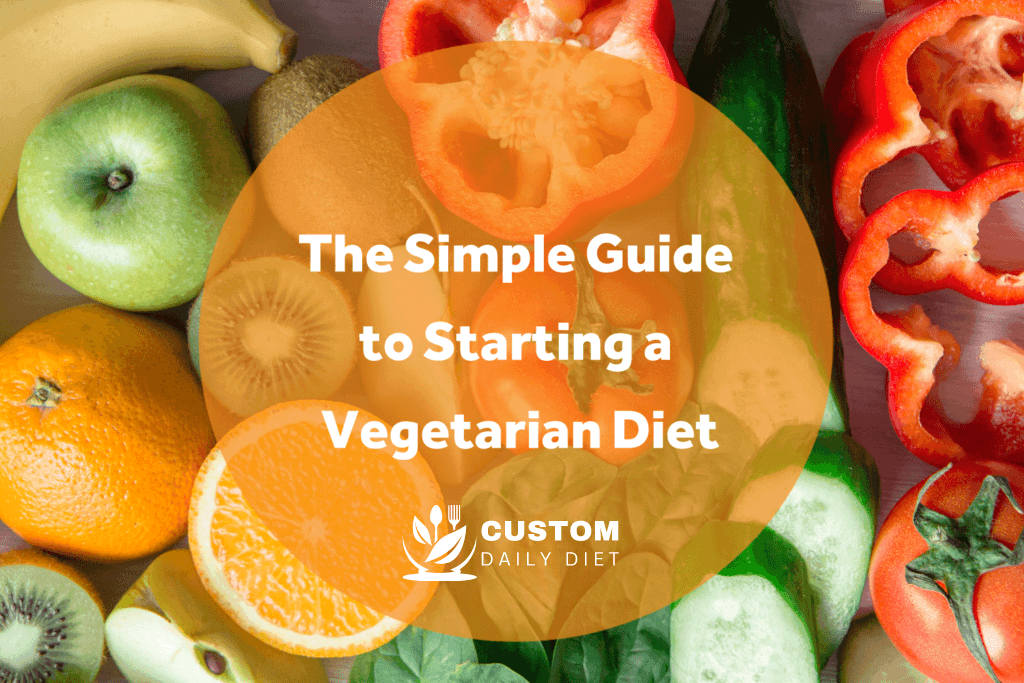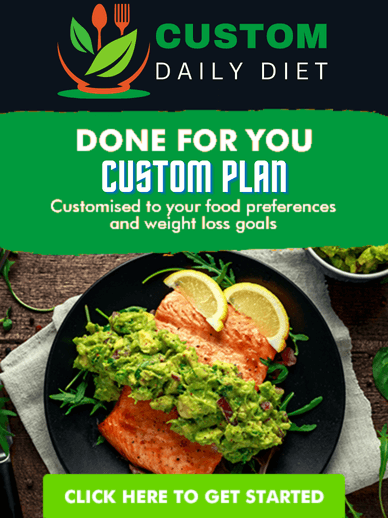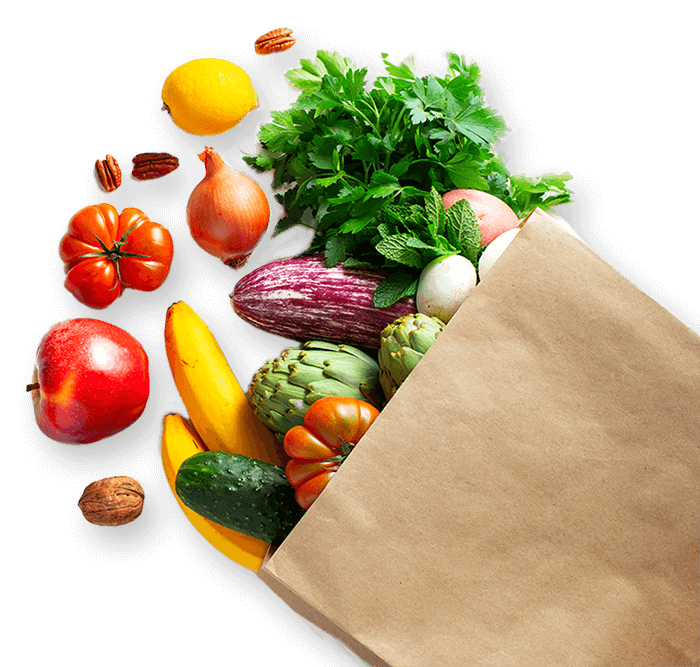If you are looking to improve your nutrition and shed a few of the extra pounds in the process, the vegetarian diet plan might be perfect for you.
More and more people are choosing to go down the path of becoming a vegetarian not only for personal beliefs about eating animal products, but also because of the health benefits that a vegetarian diet can offer. Growing research demonstrates the benefits of plant-based diets, such as this study on the impact of a vegetarian diet on insulin sensitivity.
But how do you successfully transition to eating vegetarian meals while ensuring your nutrient needs are met and your weight loss is sustainable? This simple guide will cover the basics that you need to know about becoming a vegetarian. Before you dive in, please talk to your doctor first before making any major changes to your diet.
If you do decide to follow a vegetarian meal plan, you can choose vegetarian as your primary diet type in Eat This Much to make the transition much easier.
A Primer On The Vegetarian Diet
Humans evolved to be omnivorous, but vegetarians have been around for ages. Vegetarianism likely existed long before the earliest recorded recommendation for it came from mathematician Pythagoras in early 580BCE. He believed that all animals should be treated as kindred, and therefore not eaten. Ancient Indian Vedic traditions encouraged a vegetarian diet and the Buddhist prescription of non-violence extends to animals as well.
These long standing roots of promoting kindness and wellbeing motivate many modern omnivores to forgo eating animals, but many more are choosing a vegetarian diet for the emerging scientific evidence that connects the diet to reductions in common ailments such as high cholesterol, diabetes, heart disease, and obesity. There’s also the notion that eliminating meat from your diet is better for the earth due to the environmental strain caused by industrial meat farming practices.
Types Of Vegetarian Diets
When looking at the vegetarian diet, it’s not a one-size fits all approach. The term vegetarian is an umbrella that covers a number of nuanced diets that include or omit various animals and animal products. Here are the common variations of the vegetarian diet:
• Lacto-Ovo Vegetarians, who eat both dairy as well as eggs
• Lacto-Vegetarians, who choose to consume dairy products but not eggs
• Ovo-Vegetarians, who consume eggs but not dairy
• Pesco-Vegetarians, who consume fish but no other animal based foods
• Vegans, who are the strictest type of vegetarian and consume no animal products or byproducts whatsoever
The most common type of vegetarian diet is the lacto-ovo vegetarian, but there is absolutely no right or wrong here. Any of these varieties can offer great health benefits. The key is to focus on which personal and health benefits you wish to achieve by changing your diet and experiment with meal types and recipes that support your goals.
As with all diets, the transition to a vegetarian diet comes with a few challenges. If you’re used to eating meat in every meal, or even every day, it’s recommended that you start slow by gradually removing meat from your diet one day at a time. Consider trying a Meat-Free Monday plan, or even just one vegetarian meal a week. When starting out, many find that including eggs, dairy, or fish (or a combination) in their diet makes the transition easier and helps them keep their protein needs met.
Pros:
• Can help lower heart disease and cholesterol levels
• May help reduce total calorie intake
• Often reduces total saturated fat intake
• Most people following this diet report better weight control
• Helps with increasing total dietary fiber intake
• Preparing/cooking food may be easier as you won’t have to cook meat
• Can be a cost effective type of plan for those looking to keep their budget down as meat is often the most expensive food on your grocery list
Cons:
• Can lead to nutritional deficiencies in the key nutrients of vitamin B12, protein, iron, zinc, calcium, vitamin D, and riboflavin
• Some turn to an overconsumption of heavily processed foods because they are meat-free, such as french fries and pizza
• May result in lean muscle mass loss and weakness if not enough protein is eaten
• Does require more from a meal planning standpoint to ensure all nutrients are met
• May limit you from eating in certain social engagements if vegetarian options are not available
Common Mistakes People Often Make When Becoming A Vegetarian
To help ensure that you are successful as you begin your journey into becoming a vegetarian, let’s look at some common mistakes that people make along the way.
1. Consuming too many processed carbohydrates.
Remember, if it wasn’t healthy before you became a vegetarian, it’s not healthy after either. Too many people start eating heavily processed carbohydrates such as muffins, cakes, cookies, granola, and so forth because they are all meat free. They believe it’s a good choice for this diet plan.
But, just like on any diet plan, these foods are full of empty calories and will only spike blood glucose levels and set you up for weight gain. You still want to focus on the same wholesome foods you would with any other healthy diet plan.
2. Not increasing healthy fats high enough.
Another mistake often made when switching to vegetarian meals is dropping all the meat and feasting on only fruits and vegetables. While it’s great to get in enough produce, remember that your body needs more energy than just what’s found in these foods.
If you start to notice your energy lagging, check your healthy fat intake. Make sure that it’s high enough. You can find healthy fats from foods like nuts, seeds, avocados, and oils.
3. Neglecting vegetarian-friendly protein rich foods.
Likewise, make sure that you are making a conscious effort to get in enough protein rich foods that are vegetarian friendly. Examples of these foods include tempeh, tofu, soybeans, lentils, and chickpeas. These should be making an appearance in your diet at least once per day.
If you can side-step these three major problems, you should be on track to success.
How To Get Started Today – And Stick With It
To get started with the vegetarian diet plan, some choose to dive right in and fully embrace a meat-free diet from day one, cutting out all non-permitted foods immediately. Other’s choose to transition slowly, as mentioned above, to avoid the potential shock and rebound from not having meat in their meals. We recommend a gradual transition, but if you’re motivated and confident, go for it!
No matter how you choose to go vegetarian, give yourself time and permission to indulge in meat along the way. No one is perfect.
Once you have this figured out, stock up on all the healthy vegetable, fruit and plant-based groceries you’ll need to construct this diet plan.
Here is a list of foods to consider.
• Whole grains – oatmeal, buckwheat, brown rice, quinoa, barley
• Potatoes – sweet potatoes and yams
• Legumes
• Lentils
• Nuts/seeds
• Olive oil, coconut oil, avocado oil, hemp seed oil
• Tofu
• Tempeh
• Soybeans
• All fresh fruits
• All fresh vegetables
• All the herbs and spices you want to enhance your dishes
If you’re keeping dairy in your diet, try to avoid products with preservatives and added sugar, such as flavored yogurt. It pays to be more choosey about these products when you start to rely on them more.
Now that you have these foods, do your best to plan your meals in advance. Know what you are going to eat ahead of time so as to not let unhealthy foods creep into your menu.
Finally, don’t forget to experiment with new foods often. This is what will help ensure that you don’t become bored with the diet and are able to stick with it. Eating vegetarian dishes can be just as exciting and interesting as eating non-vegetarian dishes. Eat This Much offers tons of interesting vegetarian recipes and the Grocery List feature in our Diet Plan makes weekly shopping a breeze.






